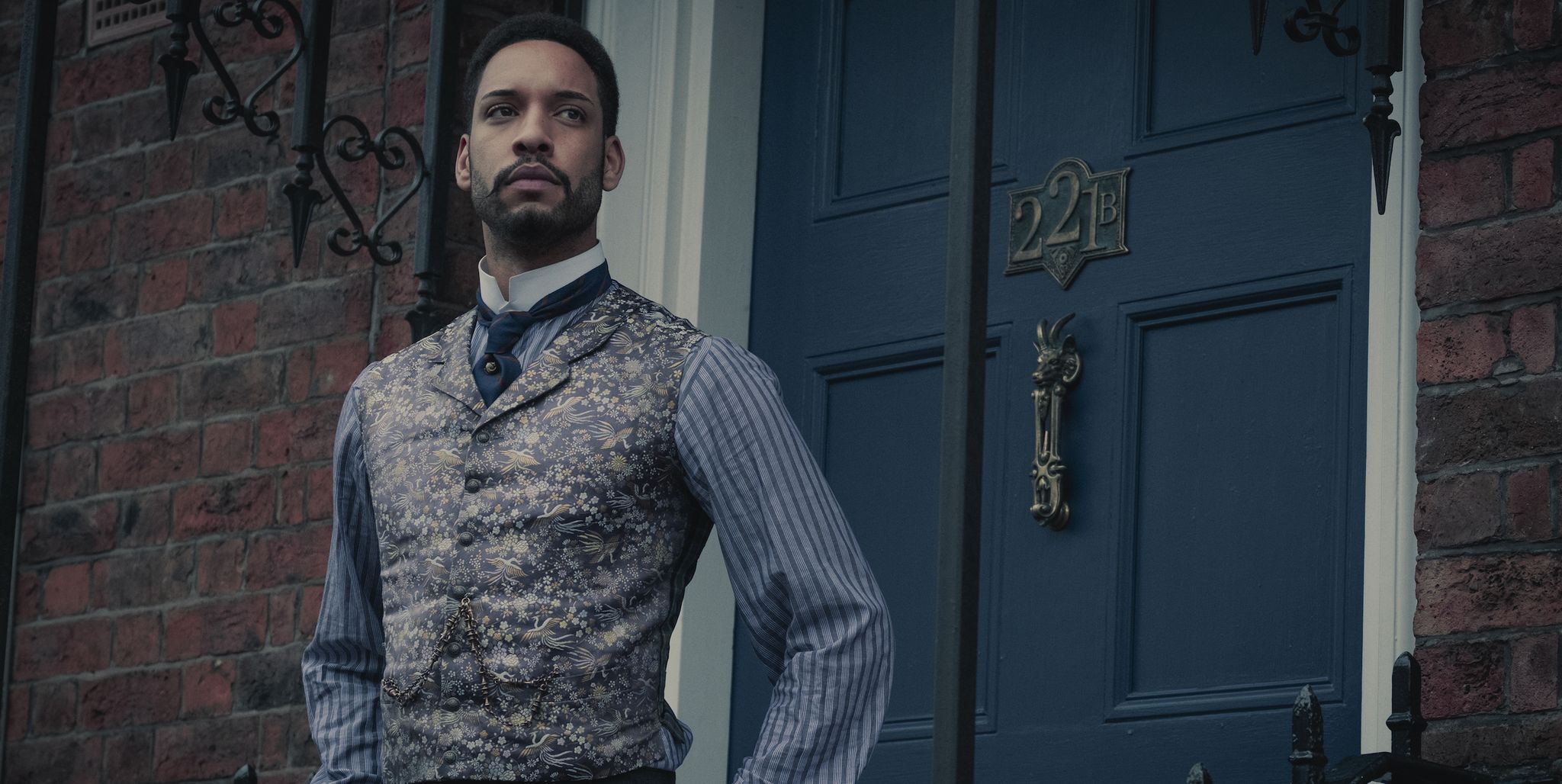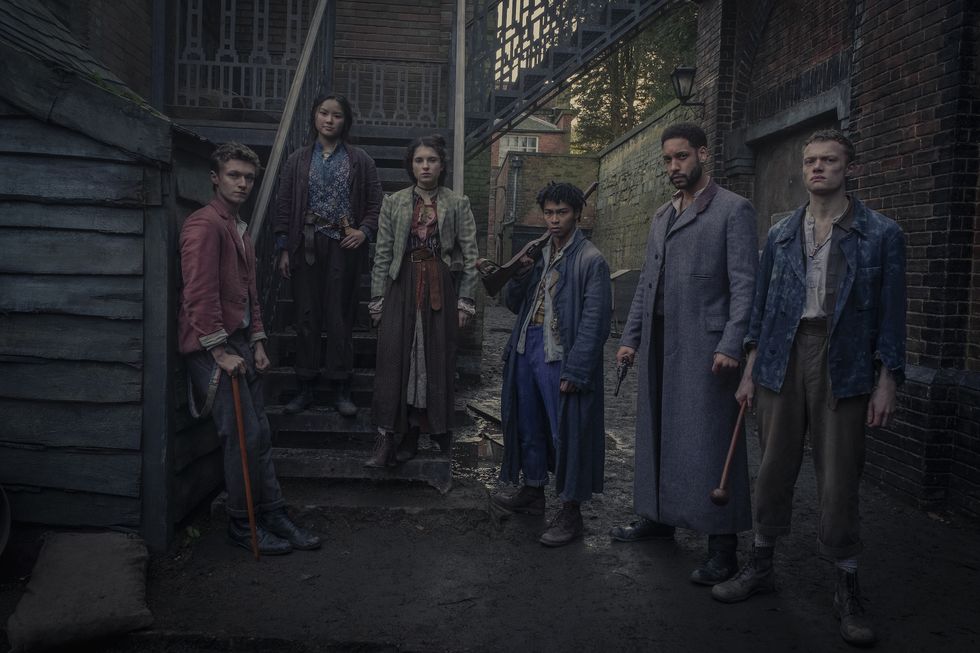Sherlock Holmes first appeared in print 1887, and since 1900's Sherlock Holmes Baffled, we've had more than 250 film adaptations of his exploits. He's been nearly as prolific on TV, most recently in the BBC's Sherlock and CBS's Elementary. It is, by any measure, an outrageously successful franchise. Sherlock Holmes has fought Nazis, gone to New York when then-Bond Roger Moore took the role, and become a gnome voiced by Johnny Depp.
Now it's a history-mystery supernatural YA drama, somewhere between Bridgerton, Skins and Torchwood. Netflix's new iteration, The Irregulars, is quite fun. It focuses on the rag-tag bunch of teen urchins who occasionally help Holmes and Watson, and has people say things like "You should be knee-deep in shenanigans at your age!" and "I should have you flogged!" It's a lark.
But why do we keep coming back to Holmes, Watson and their extended gang? The obvious answer is that it's pretty cheap. Everything Arthur Conan Doyle wrote about Holmes has been in the public domain in the UK since 2000, and the Holmes stories from before 1923 – four novels and some 46 short stories – are in the public domain in America now. You can do what you want with them, and riff on a set-up and story-world everyone reflexively knows.
Whether it's a straightforward fog-and-clogs cobblestoned Victoriana or Sherlock Holmes in the 22nd Century, there are a set of touchstones to work with: the rooms at 221B Baker Street, Watson, Moriarty, Mycroft, the Baker Street Irregulars, Holmes' coke habit. It's a readymade sandbox, but one with well-defined edges. It's hard to make a total pig's ear of it, and there's always an audience for it. All this makes Will Ferrell and John C Reilly's turkey Holmes & Watson that much more inexplicable.
The Conan Doyle Estate is extremely hot on who gets to use Holmes and how, and has jumped on adaptations which reference anything from the last 10 stories Conan Doyle wrote. It's not just the nuts and bolts of the mysteries either. Woe betide you if you mention any character trait from the later, warmer Holmes stories, like how much Holmes likes dogs and the fact that Watson's on his second marriage. That copyright protection is only to last until the end of next year, though, so prepare yourself for another slew of Holmes adaptations from America. This time, though, he'll be allowed emotions.
Beyond being cheap and fairly straightforward to put together, there's something else that keeps TV and filmmakers coming back to the Holmesverse: Holmes himself. The Holmeses we've seen in the last 10 years have been wildly different to the straight-laced patrician logic machine Basil Rathbone and Jeremy Brett perfected, which was what he was in nearly every adaptation. Enola Holmes gave Henry Cavill's Holmes feelings. Elementary put him in rehab. Robert Downey Jr's Holmes was a post-John Woo action brute. Ian McKellen's aged Holmes had dementia. Will Ferrell's Holmes was an exhausting moron.
The one thread connecting them is that that remarkable brain of Holmes' is now written more as a burden than a gift. Remember that Benedict Cumberbatch's Holmes was, by the end of Sherlock's run, one of the most unbearable characters ever put on screen. You could not be friends with him. He was awful.
What all this suggests is that in the last decade or so we've become more suspicious of a purely analytical mind. Perhaps it's the slow creep of artificial intelligence and algorithmic ordering into most aspects of our lives. Perhaps it's an unease with the way that raw, unfeeling rationalism crops up as part of right-wing political discourse to demand walls and deportations. Perhaps it's just that it's cheap.
Either way, it's telling that The Irregulars' Holmes is an aggressive heroin addict, and his street urchins are a tight-knit multiracial gang who look out for each other. We're less interested in one brilliant but difficult – but, more importantly, brilliant – man sorting everything out on his own than we used to be, and that's a good thing all round.
Like this article? Sign up to our newsletter to get more delivered straight to your inbox
Need some positivity right now? Subscribe to Esquire now for a hit of style, fitness, culture and advice from the experts














